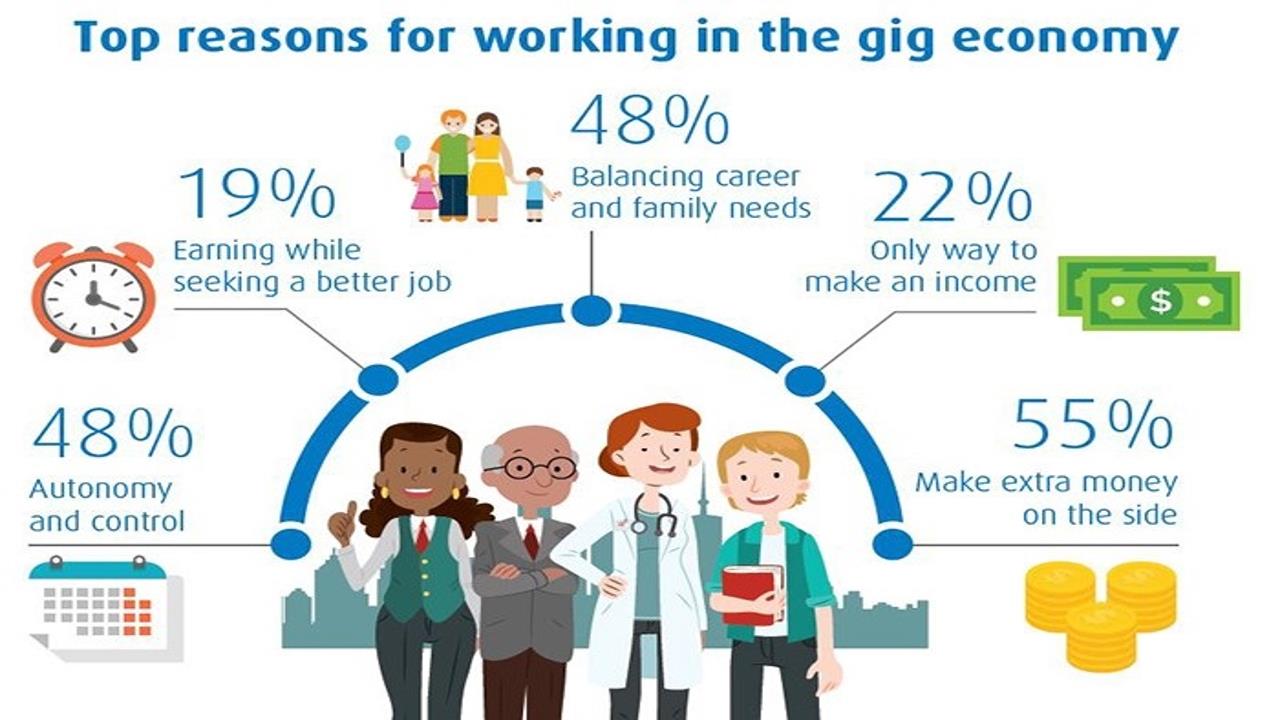Video:
Take our online poll:
AI Analysis:
The gig economy, characterized by short-term, flexible jobs often facilitated by online platforms, has both advantages and disadvantages. Here are some pros and cons:
Pros:
1) Flexibility: One of the most significant advantages is the flexibility it offers to workers. Gig workers can choose when and where to work, allowing for a better work-life balance.
2) Diverse Opportunities: The gig economy provides a range of job opportunities across various industries, allowing individuals to explore different roles and acquire diverse skills.
3) Entrepreneurial Opportunities: Gig work can provide individuals with the chance to work as freelancers or entrepreneurs, managing their own businesses and setting their own rates.
4) Quick Income: Gig workers can often start earning quickly, without the lengthy processes associated with traditional employment. This can be especially beneficial in times of urgent financial need.
5) Access to a Global Marketplace: Online platforms enable workers to access a global market, increasing the potential for finding clients or customers beyond their local area.
Cons:
1) Job Insecurity: Gig workers often lack job security as their income is contingent on the demand for their services. There's no guarantee of steady work or income.
2) Lack of Benefits: Gig workers typically don't receive traditional employment benefits such as health insurance, retirement plans, or paid time off, which can impact their overall financial stability.
3) Income Variability: Earnings can be inconsistent, and gig workers may experience periods of financial instability due to fluctuations in demand for their services.
4) Limited Workers' Rights: Gig workers are often classified as independent contractors, which means they may not be entitled to the same labor protections and rights as traditional employees, such as minimum wage, overtime pay, and workplace safety regulations.
5) Dependency on Platforms: Gig workers are dependent on the platforms that connect them with clients or customers. Changes in platform policies or sudden deactivation of accounts can impact their livelihoods.
6) Isolation and Lack of Social Interaction: Many gig workers operate independently, which can lead to feelings of isolation and a lack of social interaction compared to traditional office environments.
7) Potential for Exploitation: Some argue that gig workers may be vulnerable to exploitation as they might face pressure to accept low wages or unfavorable working conditions to secure jobs.
In conclusion, while the gig economy offers flexibility and diverse opportunities, it also comes with challenges related to job security, benefits, and workers' rights. The overall impact depends on the specific circumstances of the gig worker and the nature of the gig economy in a particular industry or region.
Chart:

References:


Comments